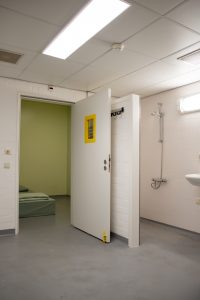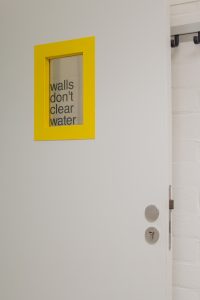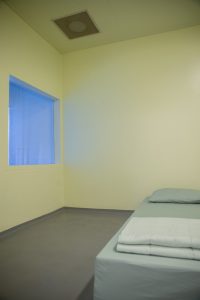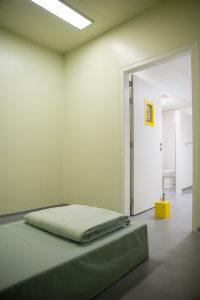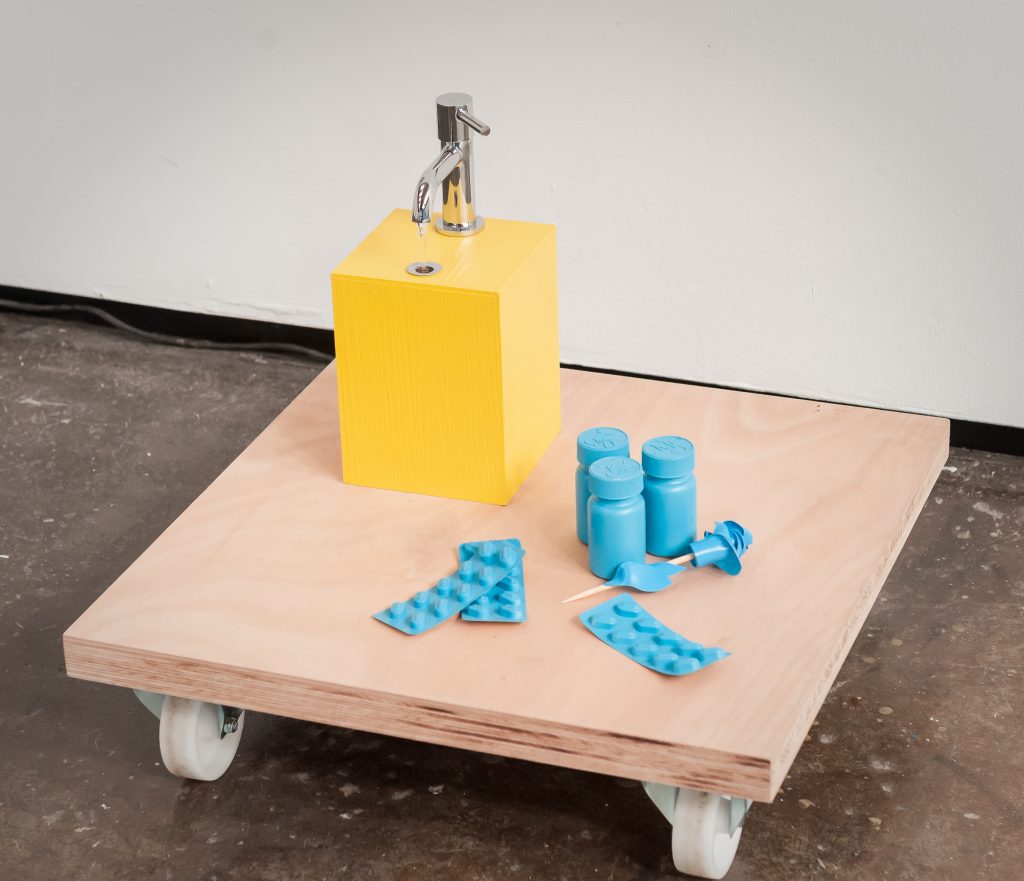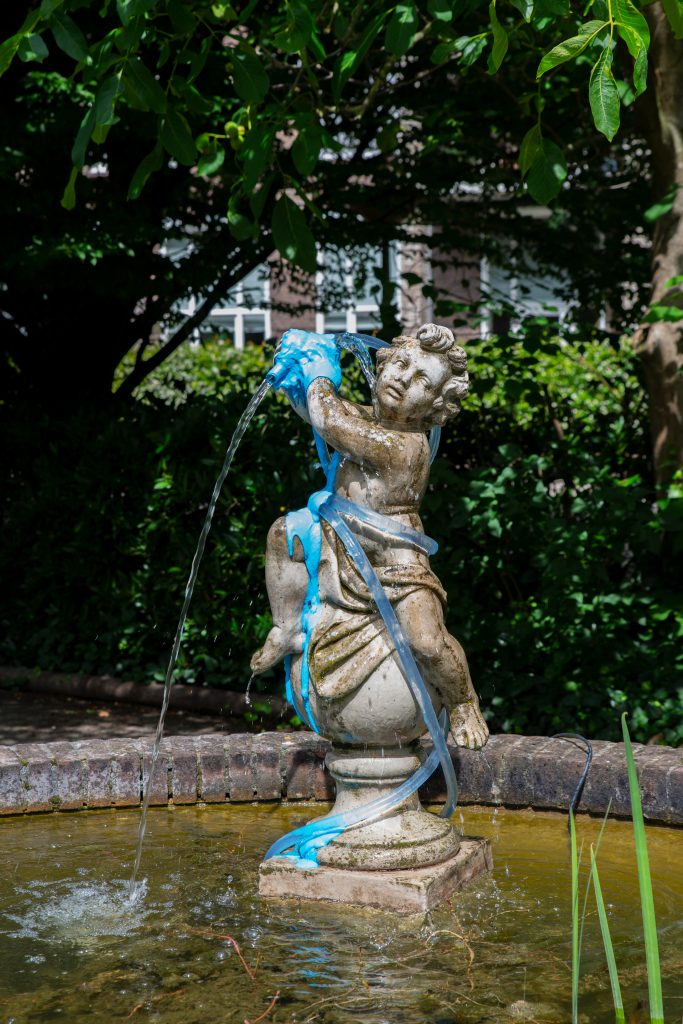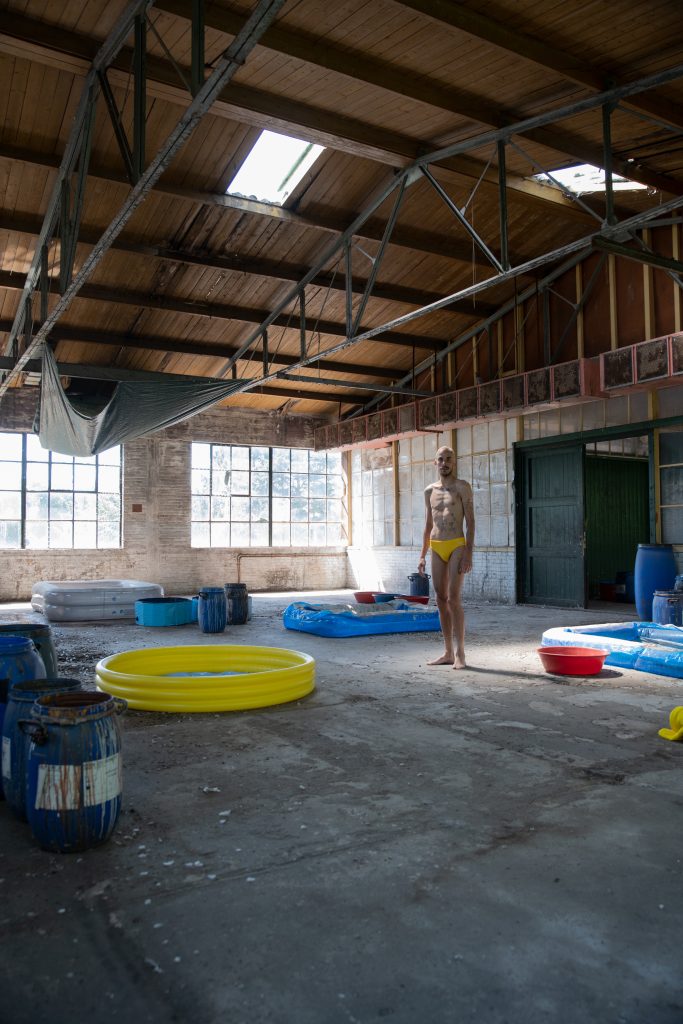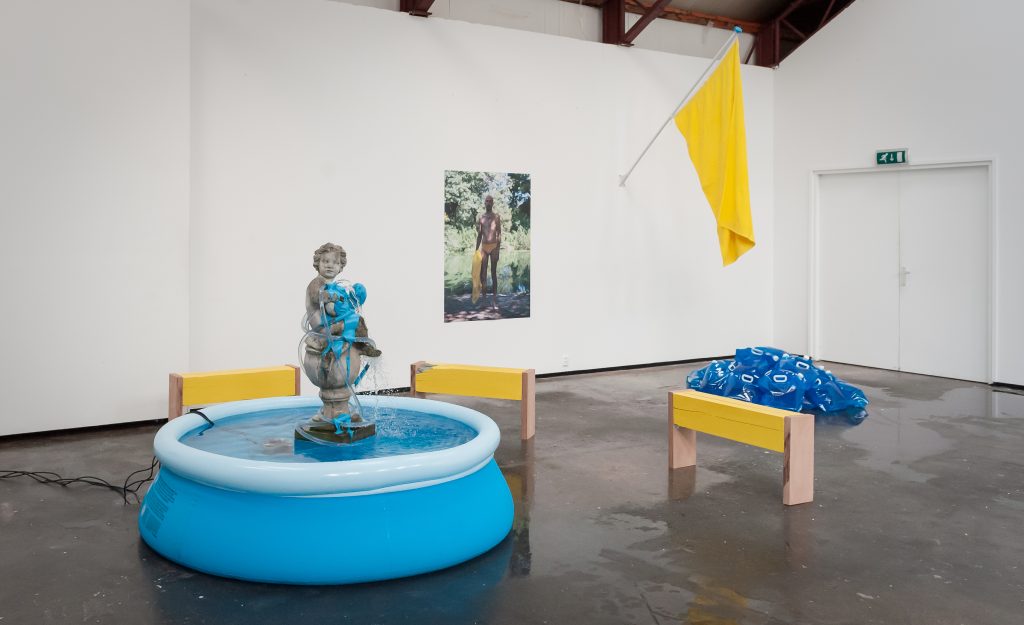
Beautiful Distress House, Amsterdam
11, 12, 13 August 2022
With the project Fountain of Wellbeing (Walls Don’t Clear Water), Rik Dijkhuizen has created a series of new works in which he reflects on institutionalised care, collective embodiment and water, and brought them together in an immersive installation consisting of a fountain, an isolation cell, various visual reflections, sculptures, photography, video and text. This project came into being in June 2022, during a residency at Vrouw Muskens in collaboration with Ggz Breburg in Dongen, where he stayed in a former isolation cell and developed a work that responded to this specific context.
‘We are all bodies of water. […] The space between our selves and our others is at once as distant as the primeval sea, yet also closer than our own skin. […] Water entangles our bodies in relations of gift, debt, theft, complicity, differentiation, relation.’ – Astrida Niemanis.
Our emotions flow through our bodies like water through a fountain. They move in small ripples or giant waves in our stomach, they meander through our veins and seep out of the smallest pores of our skin. We are water, and as water we are connected, to each other, our landscapes, our time. Water nourishes, distributes, cleans and nurtures. But what happens to the watery bodies that have been found too murky and the unknown creatures that dwell in its turbulent depths pose an invisible threat? How do we, incidentally or structurally, care for our watery wellbeing, and that of others? And how do we come closer to each other while the authoritarian mechanisms that define the distinction between good and bad divide us so persistently?
In our hyper-individual society, our physical and mental well-being determines the extent to which we are allowed participate in society as a productive body. The fear of being labeled as deficient is constantly luring, and although a wound in our flesh can easily be stitched up, there are also less tangible wounds that require constant care, or a different kind of care. Spaces of care, such as psychiatric institutions, provides safety to bodies for whom life has proven to be too challenging, but they are also representatives of its counterpart; of control, security, surveillance, intimidation and power. The thick concrete walls and closed doors are poignant symbols of a society that struggles to be open to alterity. But history teaches us: walls separate the body but they do not sanitise our (collective) wellbeing.
By echooing the isolation cell in which he spent a month as part of his research, Dijkhuizen attempts to make this space, an embodied trauma that is normally hidden from view in a closed institution, visible and tangible. The work invites us to come to terms with this painful history and reflects on the way it is reproduced in ever more nuanced ways through constant surveillance, security and discipline, both in- and outside institutions of care. Furthermore, the artist explores more humane institutionalised methods of care by imagining our bodies, communities and landscapes as watery. Two actual fountains, the first of which is on the grounds of GGz Breburg and its counterpart is included in the exhibition, brings two worlds that are kept apart closer together and remind us of the way we as a collective form a body, in which care is a shared responsibility.
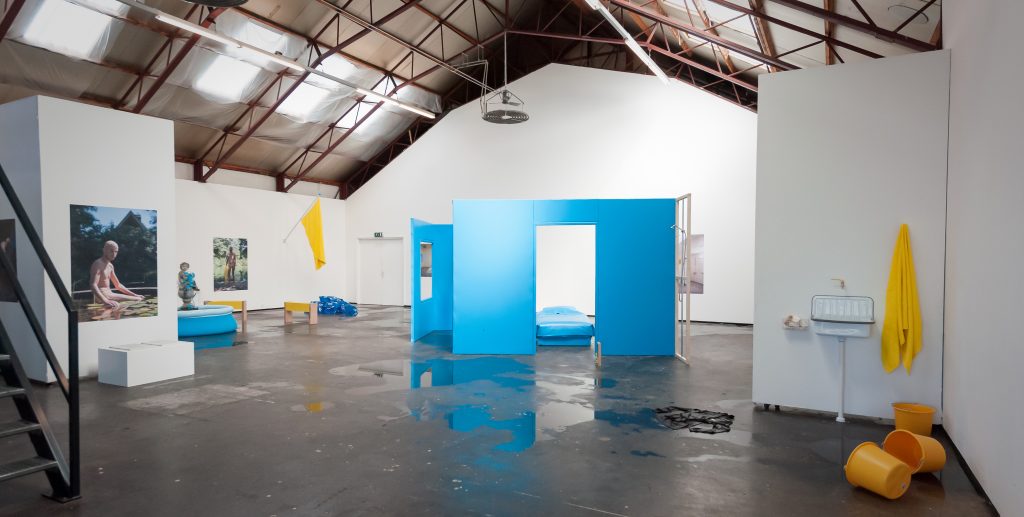
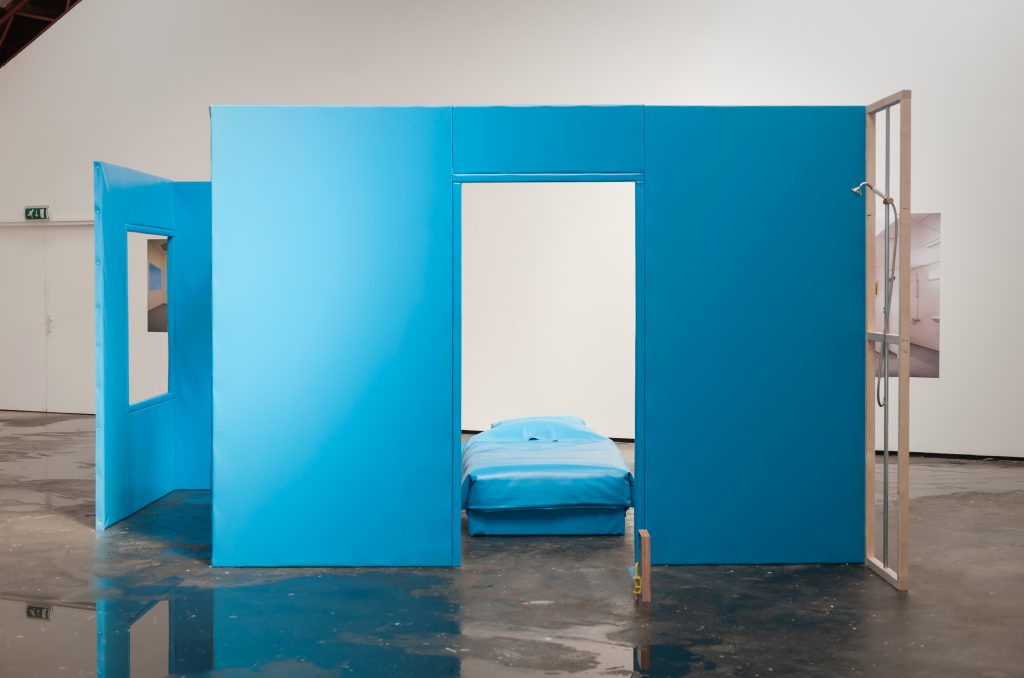
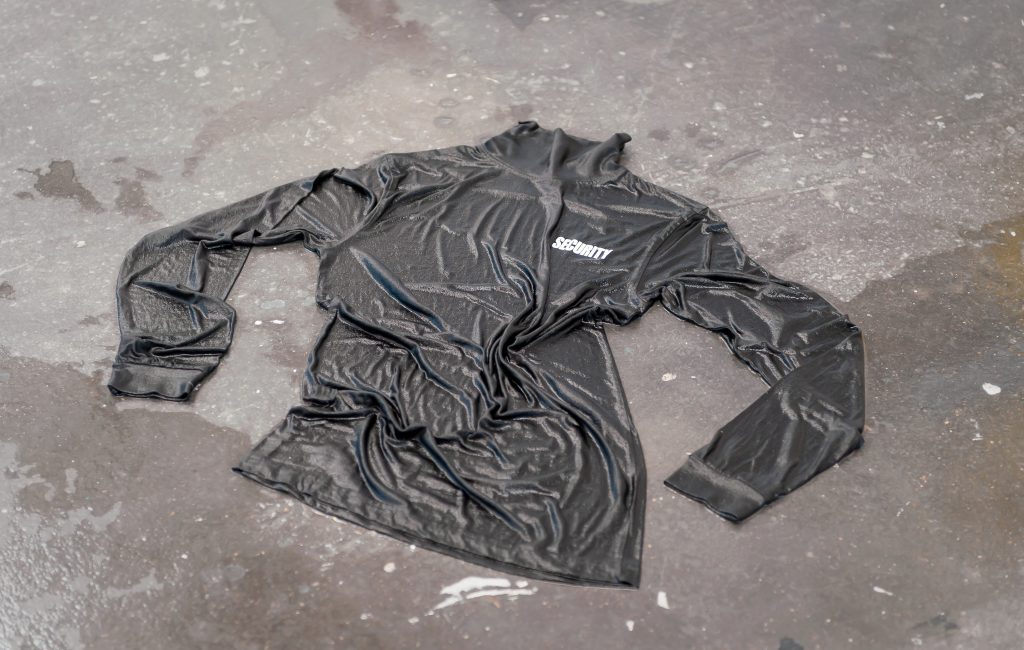
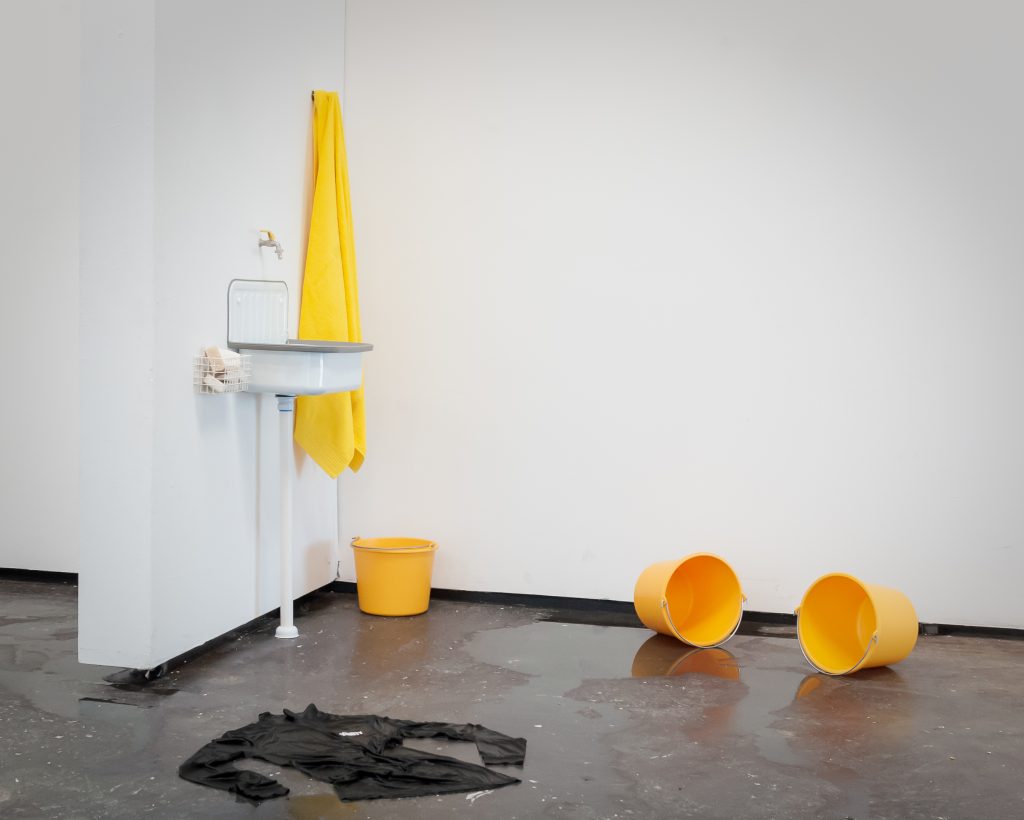
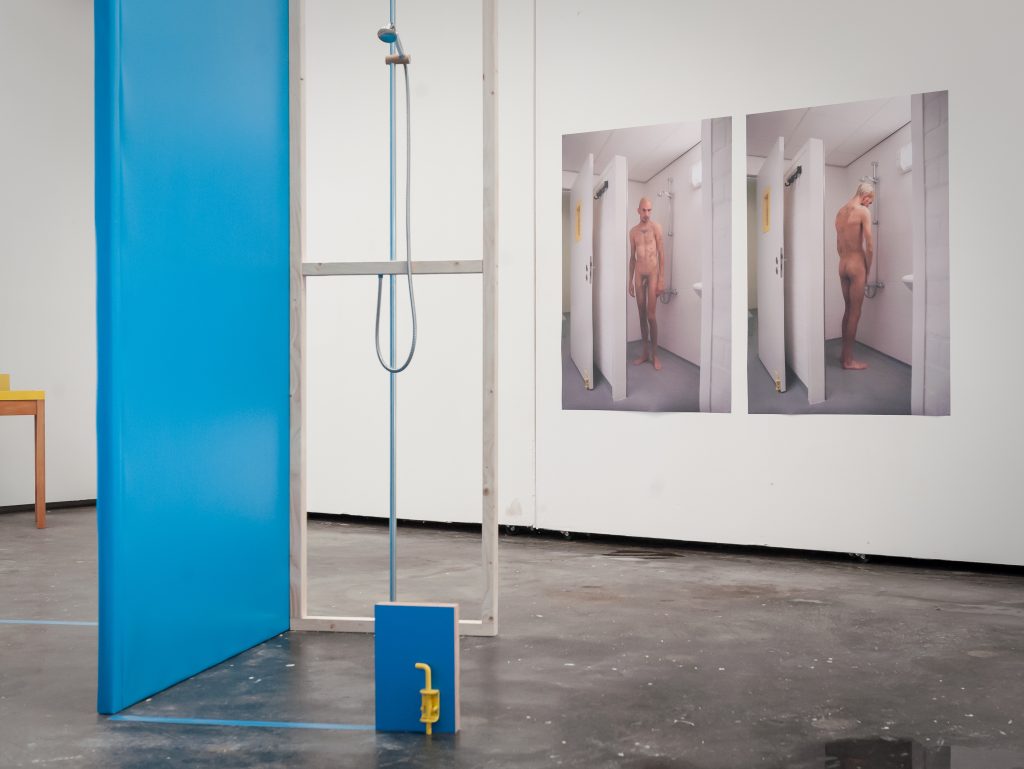
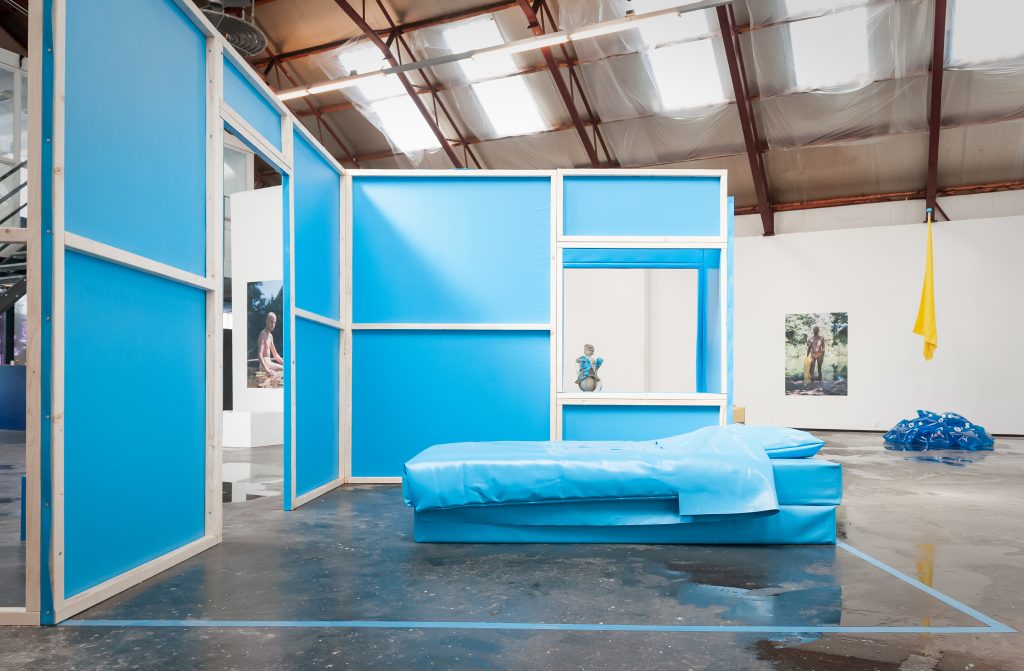
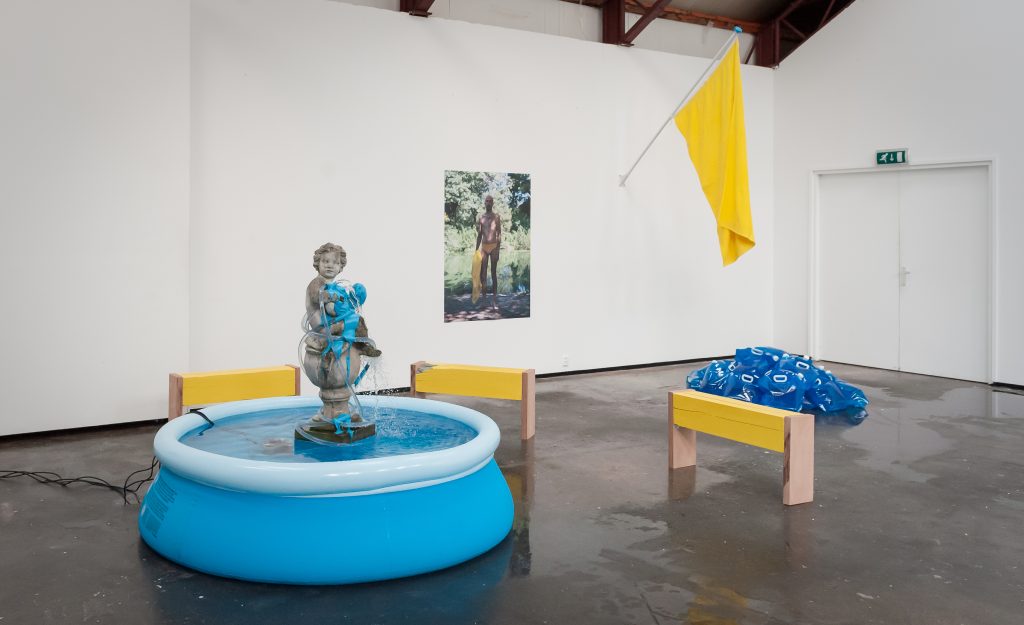
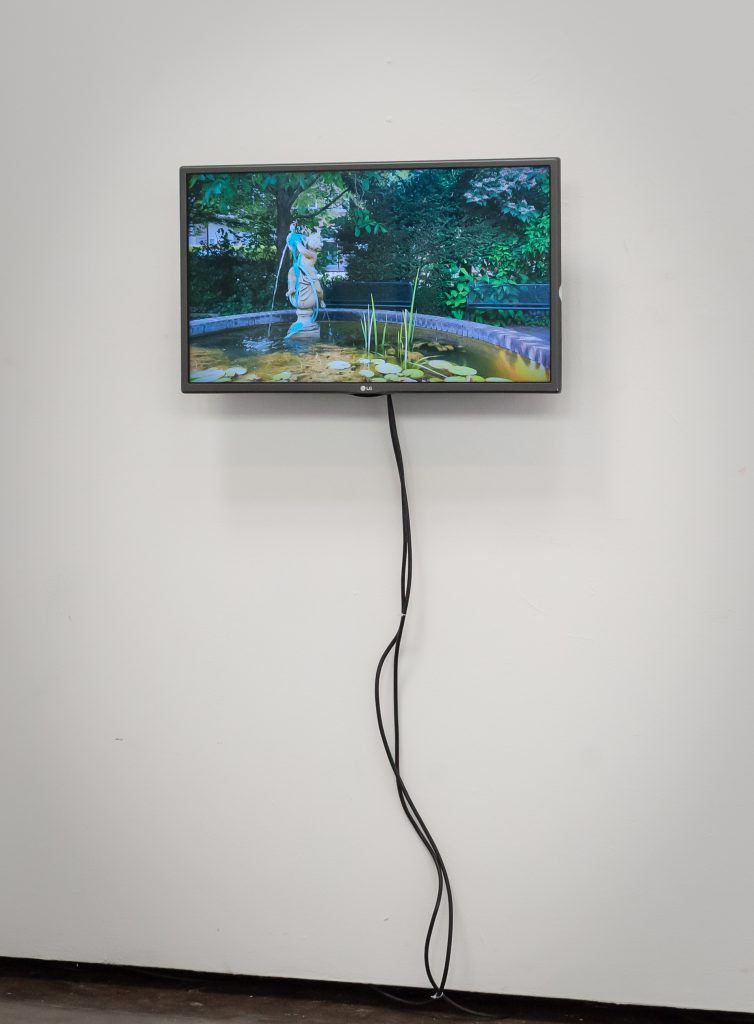
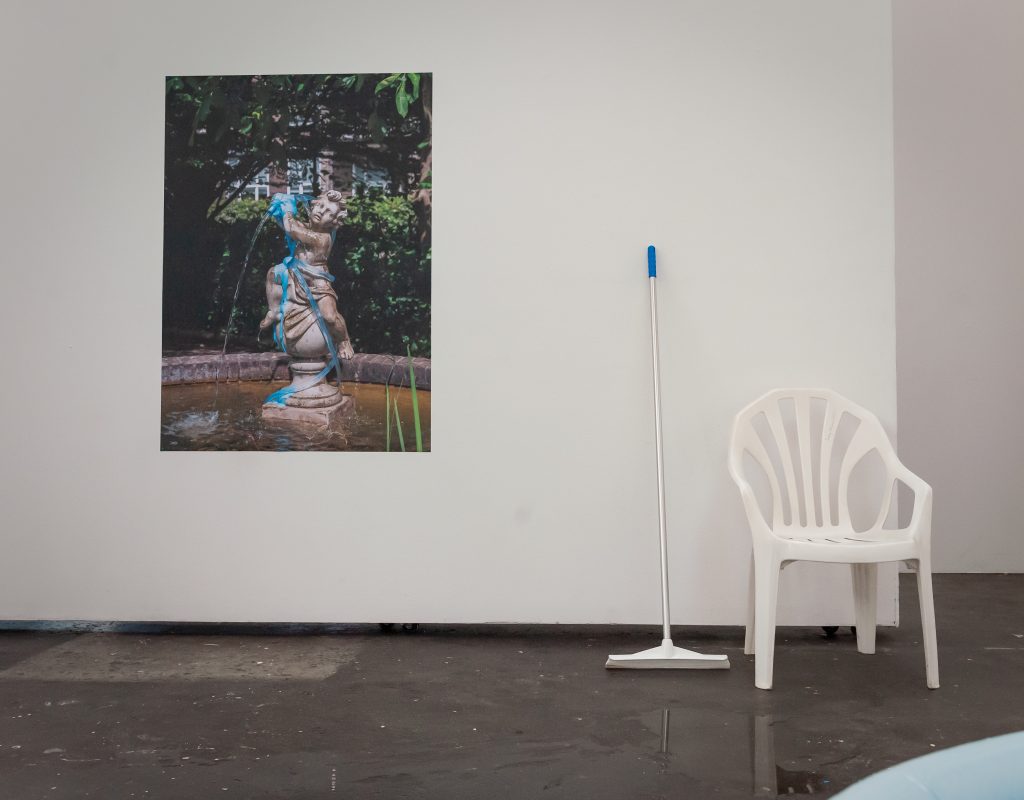
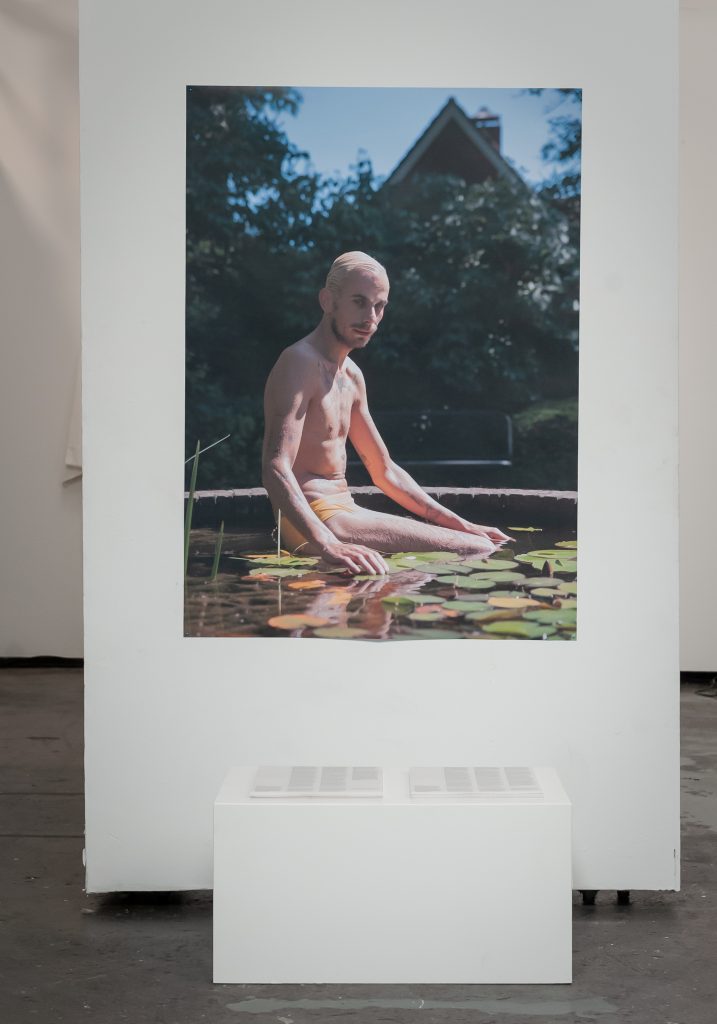
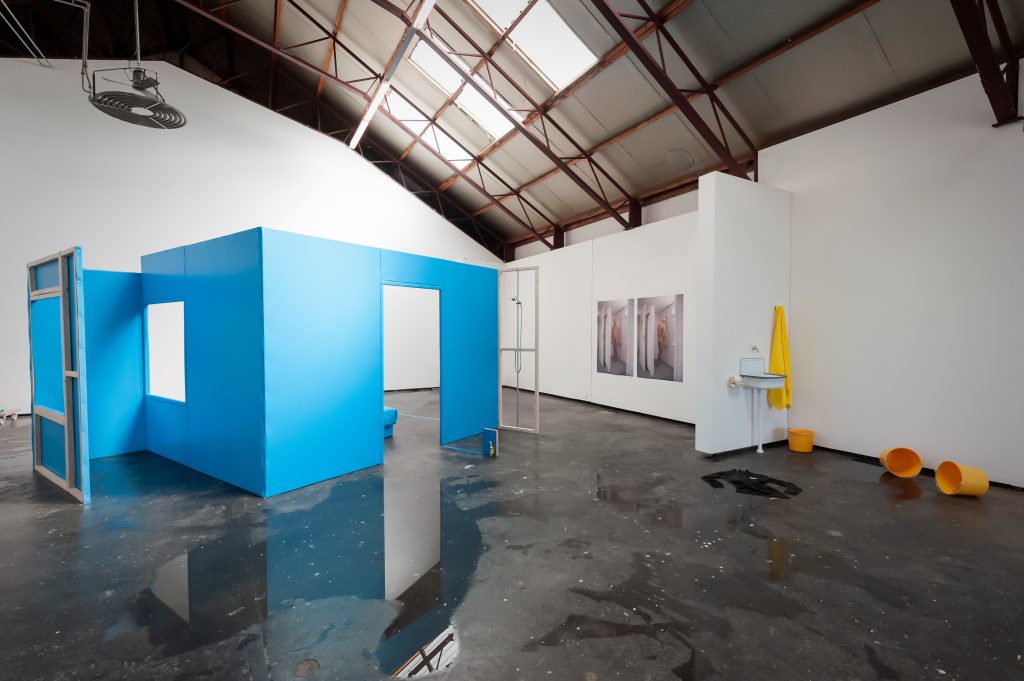
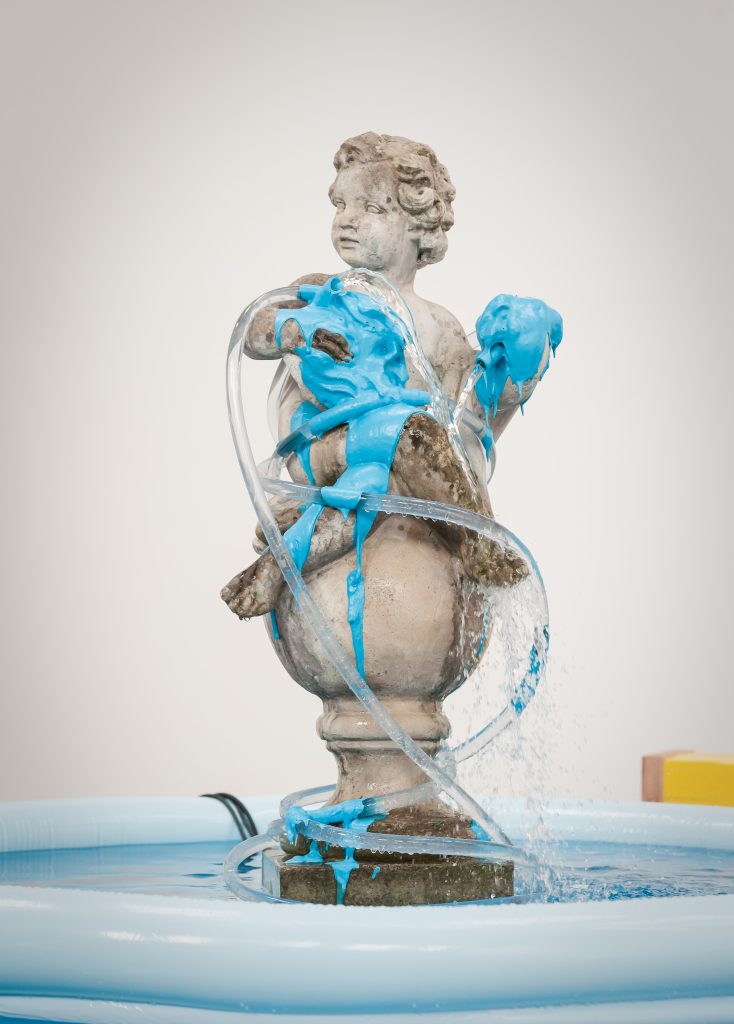
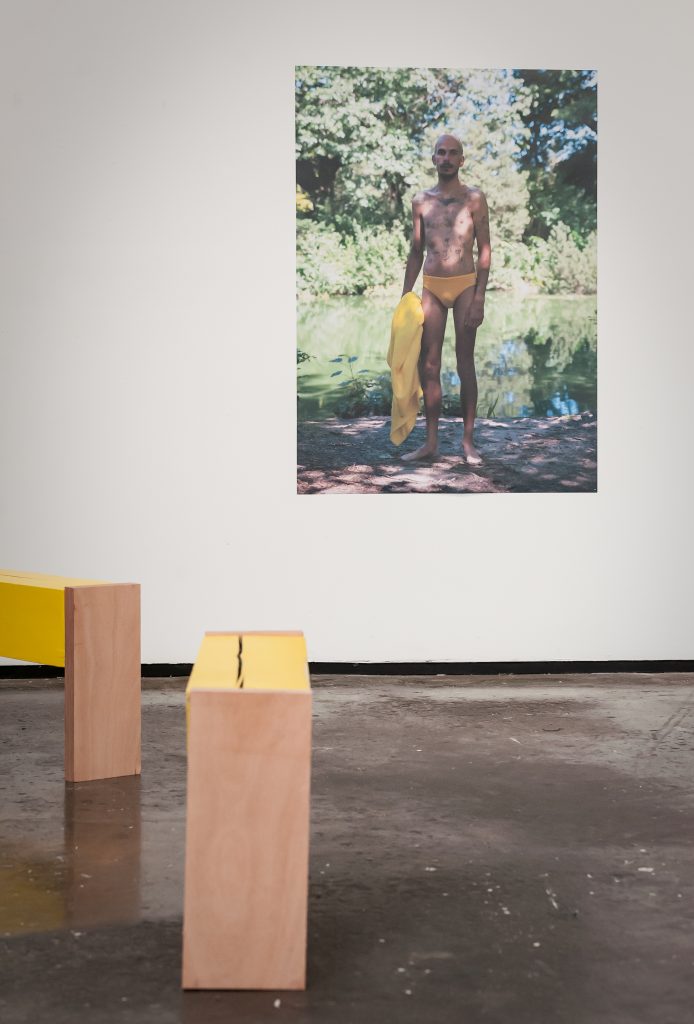
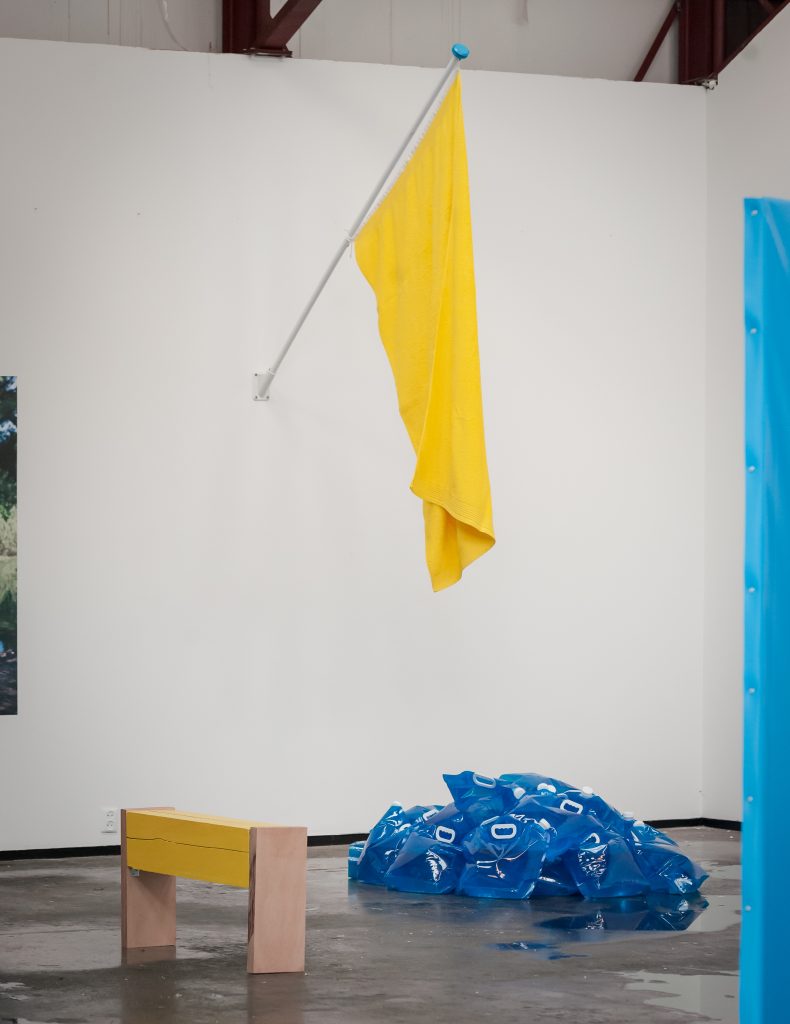

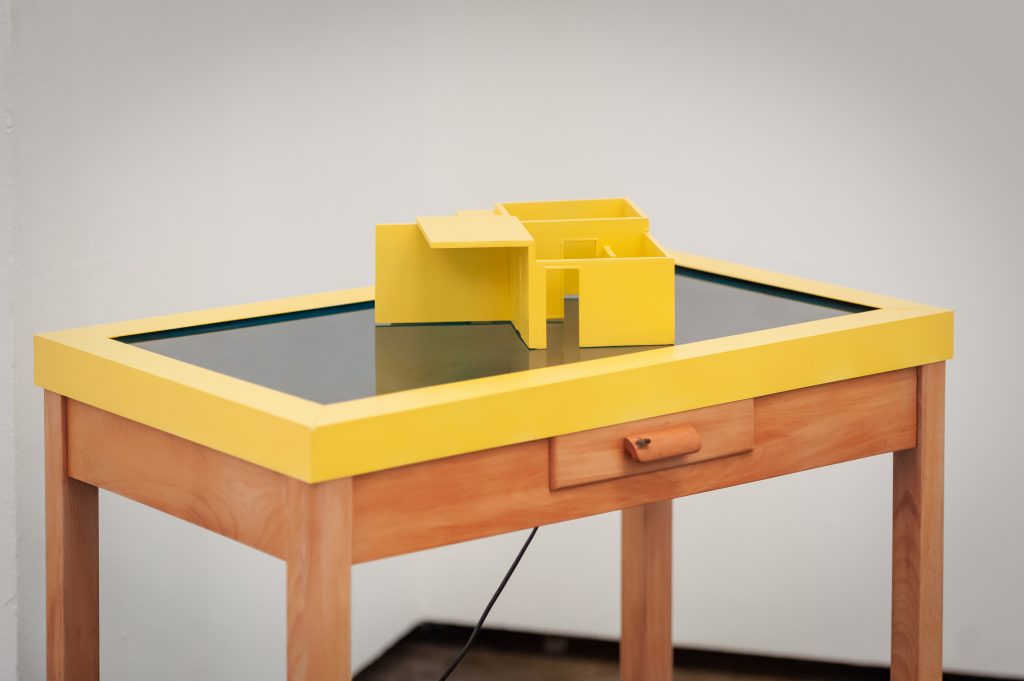

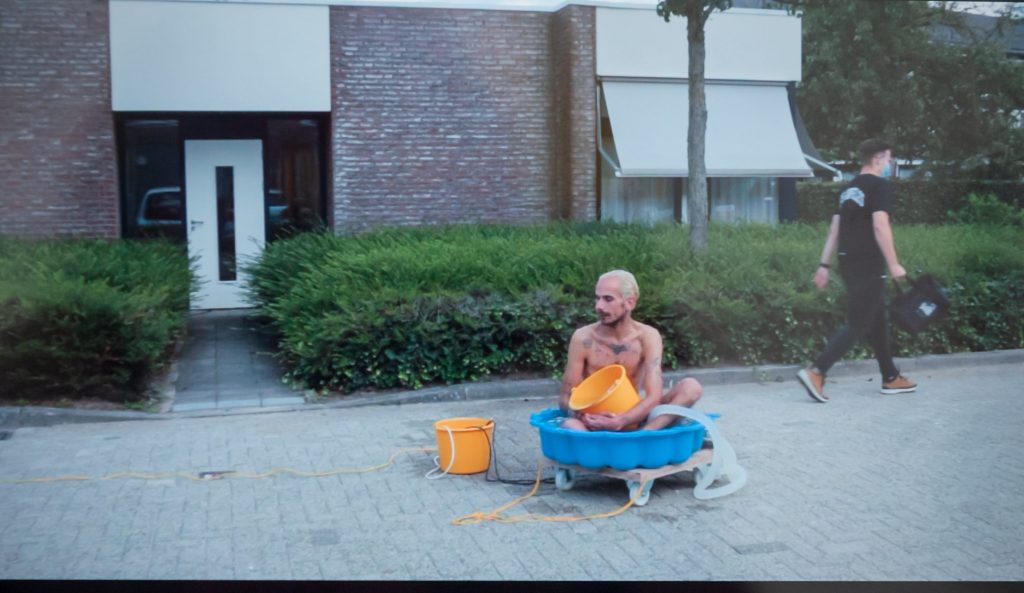

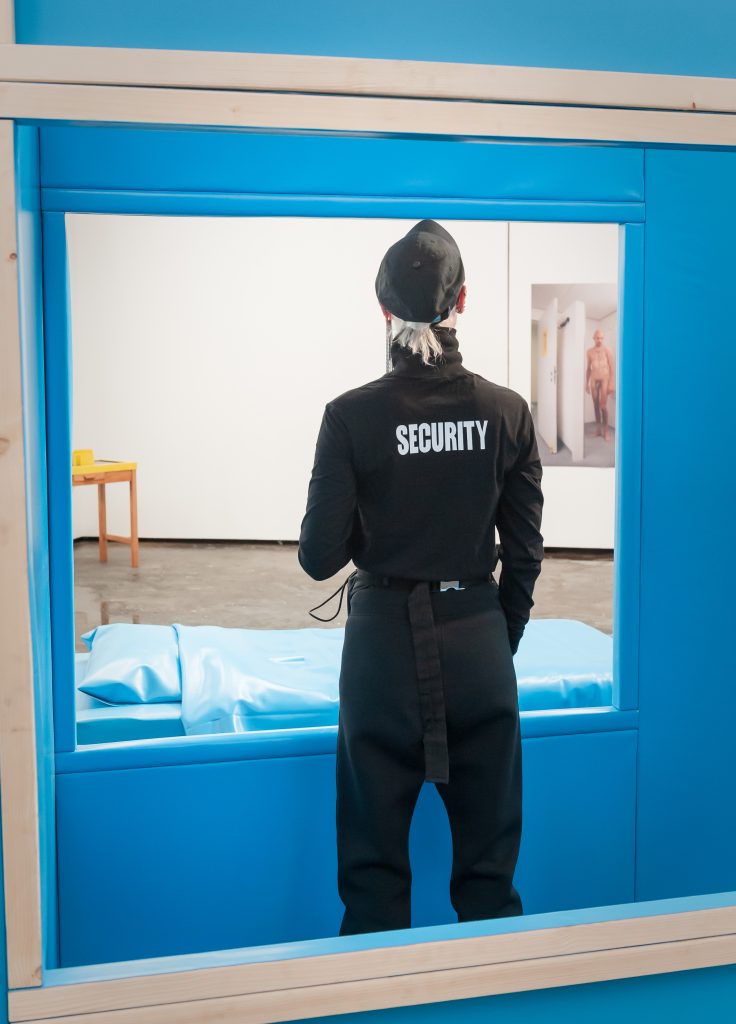
Credits
Photography: Stijn Rompa
Videography: Alexander Gielen
w/ actors: Wim, Niels, Gerard, Lidian and her sausage dog, Nadia, Emma, Judith.
Sound work: Hugo Boccara
Performative piece: Lisette, Rosa, Steven, Hugo, Ivania, Javier, Liz, Willem, Karolien, Annelien, Inez, Tijme, Hedwig
Photo documentation: Bart Treuren
Thanks to
Vrouw Muskens: Judith Kuijpers, Niels Ballemans, Stijn Rompa, Karlijn Agterberg
GGZ Breburg: Geert de Rooij and the employees and residents of Dongekant
Beautiful Distress: Fleur Kuypes, Rosa Cherim and the team.
Assistance
Bert ten Velde, Jeroen de Rooij, Diane van Trommelen, Vince Vega, Suzanne Oord
